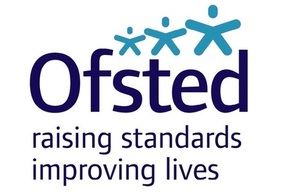New method to help measure the happiness of children developed
Dr Roger Morgan, Children's Rights Director, has created a questionnaire based on things young people might say about themselves.

Twenty statements such as ‘I know what is happening next in my life’, ‘I get bullied’, ‘I am getting all the help I need’ and ‘I get lonely’ are listed and each is given a score. Children complete the questionnaire by ticking all of the statements that are right about them.
Children’s Rights Director, Dr Roger Morgan said:
The happiness of children is a hugely debated topic and there has been much research into what is meant by happiness. I wanted to ask children themselves what they thought happiness was so that I could better understand what makes them happy, or unhappy.
What children told me about their own happiness has helped me to develop a really useful tool, which will provide the methodology for future research into the happiness of children in care in England.
A powerful finding from working with children themselves on how to measure happiness was that children agreed more about what makes them unhappy than about what makes them happy.
During focus discussion groups, children and young people were asked what they thought the definition of happiness was. They thought happiness had a lot to do with being satisfied with how things are for you. One group said happiness wasn’t one thing, but could depend on lots of different things for different people. Another group suggested that it could be to do with doing different things with other people, from sex to laughing a lot.
The children agreed that people are not born happy or unhappy, but are made happy or unhappy by what happens to them. One person summed this up by saying: ‘Can’t be born happy, but can be born into happiness.’
When asked if money can make you happy, some children said that being treated equally and fairly, and having family, is more important than how much money you have.
Children in the discussion groups said that being safe and well looked after, having all the basic things you needed, being treated fairly and with respect, being able to make your own decisions and do things you wanted to do, stability, and having support from family and friends, all helped to make children and young people happy.
The things that the children felt could make a child unhappy included lack of trust, being bullied, people being prejudiced against you, being treated unfairly, losing somebody who matters to you, not being cared for properly, being abused, not being listened to, being excluded from things, not being told things you needed to know, and being let down by people who should be supporting you.
Notes to editors
-
The Children’s Rights Director for England has independent statutory duties to ascertain and report the views of children living away from home or in care, to advise on children’s rights and welfare, and to raise matters he considers significant to the rights or welfare of the children in his remit.
-
The Office for Standards in Education, Children’s Services and Skills (Ofsted) regulates and inspects to achieve excellence in the care of children and young people, and in education and skills for learners of all ages. It regulates and inspects childcare and children’s social care, and inspects the Children and Family Court Advisory Support Service (Cafcass), schools, colleges, initial teacher training, work-based learning and skills training, adult and community learning, and education and training in prisons and other secure establishments. It assesses council children’s services, and inspects services for looked after children, safeguarding and child protection.
Media enquiries
Clive House
70 Petty France
London
SW1H 9EX
Email pressenquiries@ofsted.gov.uk
Monday to Friday, 8:30am to 6pm 0300 013 0415
Out of hours duty press officer 07919 057 359